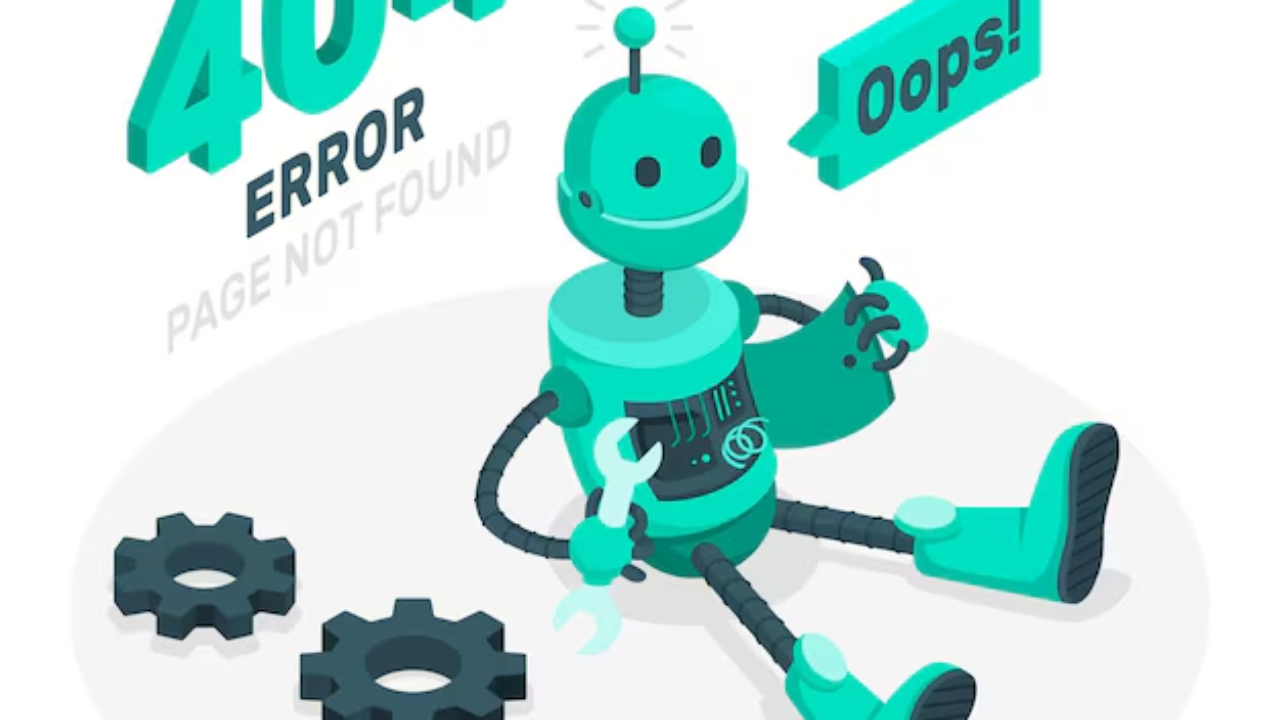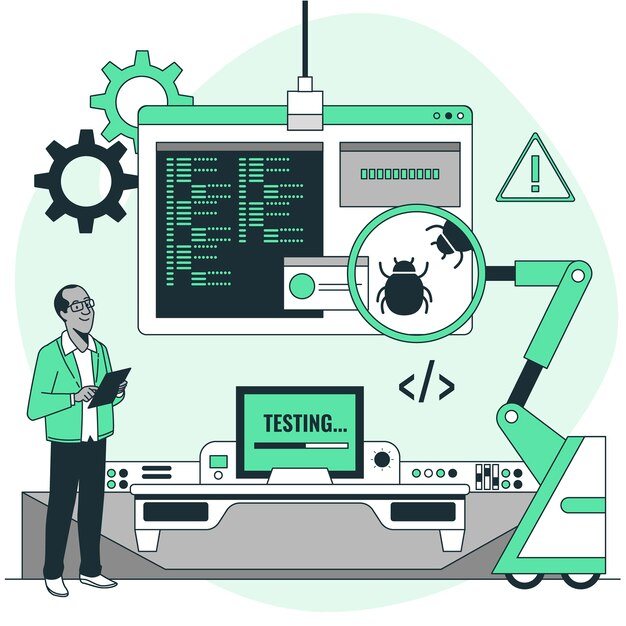The Dangers of a Rushed AI Product
Jan 11, 2025
As artificial intelligence continues to evolve and integrate into various sectors, the speed of its development has become a double-edged sword. While rapid advancements can lead to groundbreaking solutions, rushing these products can pose significant dangers.
This article explores the implications of hurried AI developments, defining key concepts, assessing potential risks, and discussing preventive measures.
Understanding the Concept of a Rushed AI Product
One must first understand what this term entails to grasp the dangers of a rushed AI product.
Rushed AI products are typically developed under significant time pressure, often sacrificing thoroughness for expediency. This phenomenon can arise from market demands, competitive pressures, or the rapid pace of technology.
Defining Artificial Intelligence
Artificial Intelligence, or AI, refers to systems designed to simulate human intelligence processes. These include learning (acquiring information and rules for using it), reasoning (using rules to reach approximate or definite conclusions), and self-correction.
AI enables machines to perform tasks that would typically require human intelligence. The field of AI encompasses various sub-disciplines, including machine learning, natural language processing, and robotics, each contributing to the broader goal of creating intelligent systems that can adapt and improve over time.
The Process of AI Development
AI development typically involves several stages, including problem definition, data collection, algorithm selection, training, and testing. Each stage is critical to ensuring the final AI product is reliable and effective. Rushing any stage could lead to flawed algorithms and unsatisfactory outcomes.
The choice of data used for training is paramount. Biased or unrepresentative datasets can skew results and lead to unintended consequences. The repercussions of these rushed developments can be profound as AI systems are increasingly integrated into various sectors, from healthcare to finance. They’ll affect businesses, individuals, and communities.
Interdisciplinary collaboration involving data science, software engineering, and domain knowledge experts is often necessary. A lack of communication can exacerbate the issues that arise from hastily developed AI products.
For instance, a data scientist may develop a sophisticated model without input from domain experts, leading to misinterpretations of the model's capabilities and limitations. This disconnect can result in products that fail to meet user needs and pose risks to safety and privacy.
What Constitutes a Rushed AI Product?
There are several indicators of a rushed AI product, including:
- Insufficient testing phases, which can lead to undetected bugs.
- Data quality issues due to inadequate cleaning or preprocessing.
- Lack of user feedback and iteration in the development process.
- Failure to comply with ethical considerations or regulatory guidelines.
When these factors are present, the potential for negative consequences increases significantly. For example, a rushed AI product deployed in a healthcare setting may misdiagnose patients due to poor data quality or inadequate testing, leading to severe health risks.
The ethical implications of AI technologies cannot be overlooked. A lack of thorough review can result in systems that inadvertently perpetuate bias or violate user privacy.
As AI evolves, a deliberate and careful approach to development becomes increasingly critical. This approach ensures that the technology serves humanity responsibly and effectively.
Potential Risks Associated with Rushed AI Products
The development of rushed AI products carries many risks, from security vulnerabilities to ethical dilemmas, that can affect corporations and consumers.
Threats to Data Security

One of the most pressing concerns is the threat to data security. A rushed development phase can lead to inadequate security measures, leaving AI systems vulnerable to hacking and data breaches, which can expose sensitive information.
AI systems often require vast amounts of data to function effectively. If the data collection process is hurried, it may include personal or sensitive data without proper consent, creating significant legal and moral implications.
Such breaches compromise individual privacy and can have severe financial repercussions for companies, including hefty fines and loss of customer loyalty. In an age when data is often considered the new oil, the ramifications of mishandling it can be catastrophic.
Ethical Concerns
Ethical concerns abound in AI, particularly when products are developed without sufficient oversight. Issues surrounding bias in AI algorithms can arise when diverse datasets are not used, leading to discriminatory outcomes.
The lack of transparency in how AI systems make decisions can create accountability issues, making it challenging to challenge erroneous or harmful recommendations. This opacity can foster distrust among users, who may feel powerless to challenge decisions made by an algorithm they don’t understand.
AI's potential to perpetuate societal biases raises significant questions about developers' and corporations' moral responsibilities to ensure fairness and equity in technology.
Quality and Performance Issues
When development is rushed, the quality and performance of AI systems can suffer drastically. Products may fail to meet user expectations, leading to frustrated consumers.
Failures in critical applications such as healthcare or autonomous vehicles can result in severe consequences, including physical harm or loss of life. Ultimately, the reputation of companies producing rushed AI products can suffer greatly.
The aftermath of releasing a subpar product can lead to diminished consumer trust. The long-term impacts can extend beyond immediate financial losses. Companies may face increased scrutiny from regulators and the public, prompting calls for stricter oversight and accountability in AI development.
As technology evolves, the importance of maintaining rigorous standards in AI development cannot be overstated. The stakes are simply too high to ignore.
The Impact on Businesses and Consumers
Rushing AI product development has implications beyond technical failures. It impacts businesses and societal perceptions of AI.
Financial Implications for Businesses
The financial ramifications for businesses developing rushed AI products can be considerable. Additional costs may arise from fixing problems after launch, replaying products, or managing public relations crises.
Poor-quality products may decrease sales as more consumers become wary of adopting AI technologies. Businesses may struggle to recover from public disappointment in a digital marketplace driven by reputation.
Hasty releases can jeopardize long-term investment in AI development. Companies that prioritize speed over quality may miss out on opportunities for innovation and improvement, ultimately hindering their competitive edge.
As they scramble to address the fallout from a poorly received product, resources that could have been allocated to research and development are diverted to damage control, stalling growth and innovation.
Potential Harm to Consumer Trust
Releasing a rushed AI product can significantly erode consumer trust in the technology and the associated brands. Consumers often rely on the effectiveness and integrity of AI products to support their digital interactions.
When an AI fails to deliver on its promises or creates adverse outcomes, it can foster skepticism toward future advancements, affecting the industry's overall growth.
This erosion of trust can lead to a broader cultural backlash against AI technology as consumers become increasingly hesitant to engage with AI solutions, even well-designed and effective.
As a result, businesses may find it challenging to establish credibility in a market fraught with uncertainty. The ripple effects can extend to partnerships and collaborations, as other companies may hesitate to associate with brands that have suffered reputational damage due to rushed product launches.
Legal and Regulatory Consequences
There are increasingly stringent regulations surrounding data protection and ethical standards in AI development. Failing to adhere to these regulations, often due to rushed processes, can lead to legal consequences. Businesses may face fines, sanctions, or lawsuits, further complicating their operational landscape.
Regulatory bodies are becoming more vigilant in monitoring AI development processes, meaning failure to comply can have lasting repercussions beyond immediate financial losses.
In addition to financial penalties, companies may face reputational harm that can linger long after legal issues are resolved. Being flagged for non-compliance can lead to increased scrutiny from regulators and consumers, creating a challenging environment for future product launches.
As the landscape of AI regulation continues to evolve, businesses must navigate a complex web of compliance requirements. Here, a single misstep can have cascading effects on their market position and public perception.
Preventing the Dangers of Rushed AI Development

While the dangers of rushed AI products are evident, there are strategies that organizations can implement to mitigate these risks effectively.
Importance of Thorough Testing
One of the most effective ways to prevent the pitfalls of rushed AI development is to prioritize thorough testing. This entails verifying the AI's functionality and evaluating its performance across diverse scenarios and datasets.
Vigorous testing can help identify potential security vulnerabilities and biases before the product reaches consumers, safeguarding the user experience and the organization's reputation.
Incorporating feedback loops during the testing phase is essential. This allows developers to refine algorithms based on real-world performance and user interactions. This iterative process enhances the reliability of the AI and fosters a culture of continuous improvement within the development team.
The Role of Regulatory Bodies
Regulatory bodies can significantly influence AI development practices. Establishing clear guidelines and standards helps ensure that companies prioritize safety and ethical considerations during the development process.
Organizations must remain engaged with these regulations and actively participate in discussions to understand the evolving landscape surrounding AI governance. Collaboration between industry leaders and regulatory bodies can lead to the creation of best practices that protect consumers and encourage innovation.
As AI advances, these bodies must adapt their frameworks to address new challenges, such as data privacy concerns and the implications of autonomous decision-making systems.
Educating Consumers on AI Risks
Finally, educating consumers about the risks associated with AI products is essential. When consumers are informed about the potential pitfalls and understand how to critically assess AI technologies, their trust in the process can be enhanced.
By fostering a knowledgeable consumer base, businesses can improve user feedback and develop better AI solutions that align with consumer needs and ethical standards.
Organizations should consider implementing outreach programs that provide resources and tools for consumers to navigate the complexities of AI.
Workshops, webinars, and informative content can empower users to make informed decisions, creating a more transparent ecosystem where developers and consumers can thrive together in the AI landscape.
Conclusion
Rushing the development of AI products can lead to dire consequences for businesses and consumers. Understanding the intricacies of AI and the importance of rigorous development processes is essential for mitigating these risks.
Thorough testing, engagement with regulatory frameworks, and consumer education can significantly reduce the dangers associated with rushed AI products, allowing for a more reliable and ethical adoption of this transformative technology.
Avoid the pitfalls of rushed AI development and gain the skills to create reliable, ethical, and impactful AI solutions. Enroll in our comprehensive AI program today!





